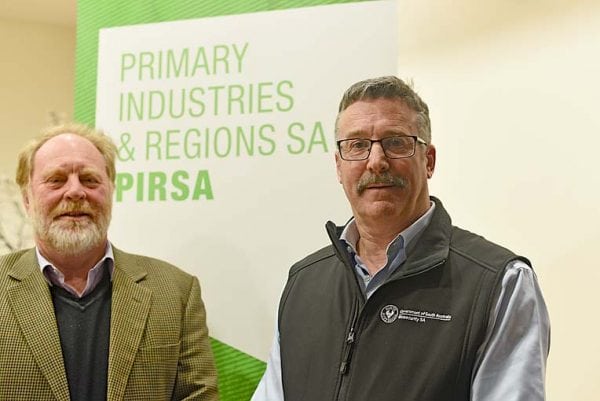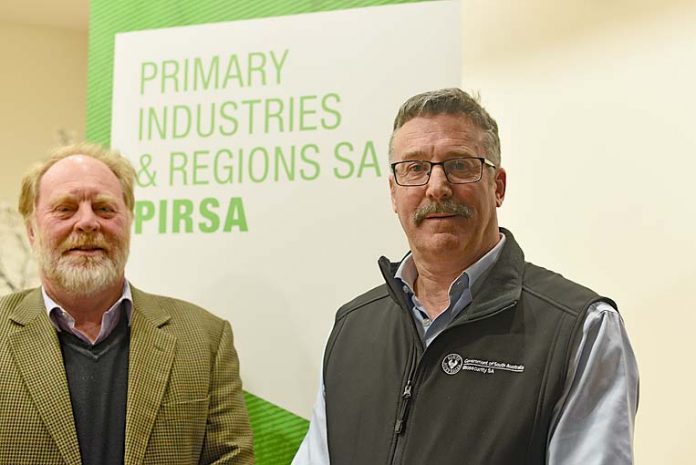
FARMERS throughout the region remain unconvinced growing industrial hemp on their properties would provide economic benefits greater than proven crops after attending an information session in the Blue Lake city this week.
Government representatives held a public session at Mount Gambier City Hall on Tuesday night about the newly released Industrial Hemp Act 2017 regulations.
The proposed regulatory framework will allow for cultivation of industrial hemp crops and establishment of a processing industry in South Australia.
The act was only passed in April this year by State Parliament and is now open to public consultation to seek feedback across the state.
Coonawarra-based broad farmer Steve Moulton said he was initially interested in adding industrial hemp to the collection of crops currently grown on his farm, however is now unsure whether it would be of any benefit.
“I am a bit sceptical at the moment after hearing about the fees and regulations – there is a bit of a grey area there,” he said.
“The crops we are currently growing are getting a better return per hectare than if we were to grow industrial hemp.
“There is a lot less risk and you don’t have to pay a fee for it, plus the industrial hemp could contaminate the rest of the crops.”
Working alongside Mr Moulton as his agronomist, Andrew Vandersluys said the regulations were far too restrictive and doubted whether many farmers in the region would begin growing the crop.
“It is technically not a drug crop so why does it have to be so strict?” he said.
“Plus there is no demand for hemp products and no big industry at the moment – it is very premature.”
Building his interest in industrial hemp over the years, Queensland-based grower and Ecofibre Industries Operations managing director Phil Warner disagreed, stating there is a market for the product across the world.
“A very reputable commodity assessment firm which does global monitoring believes that hemp specifically will increase 20pc consumption every year for the next five years,” he said at the forum.
“If you look at what happened in Canada, in 1997 the first lot of sales were made into the US and I think it constituted about $100,000 worth of retail sales.
“Last year in the US alone it was $600m – that has taken quite a while, but it seems to be getting a bit of a steamroll effect because people are wanting to know what is in their food and fortunately hemp has not had a huge lot of genetically modified organism (GMO) type of work on it.
“There is definitely a market for it – I can tell you that right now.”
The success of hemp growth in South Australia will be tested in the coming months with field trials set to commence under licence pursuant to the Controlled Substances Act 1984.
It is envisaged suitable hemp varieties and growing conditions for the state will be identified during these trials with results published to assist prospective industrial hemp growers.
The draft regulation will be open for feedback until August 25.
Visit www.pir.sa.gov.au for more information.








